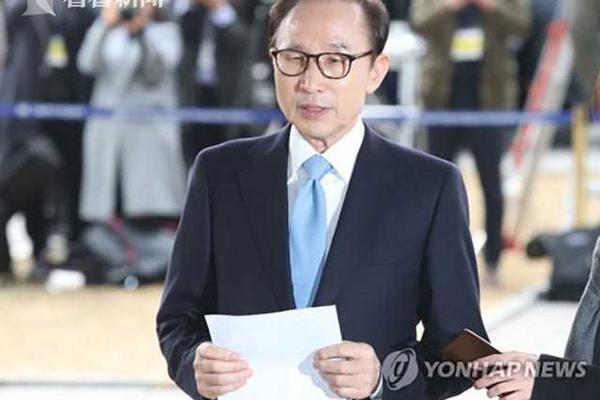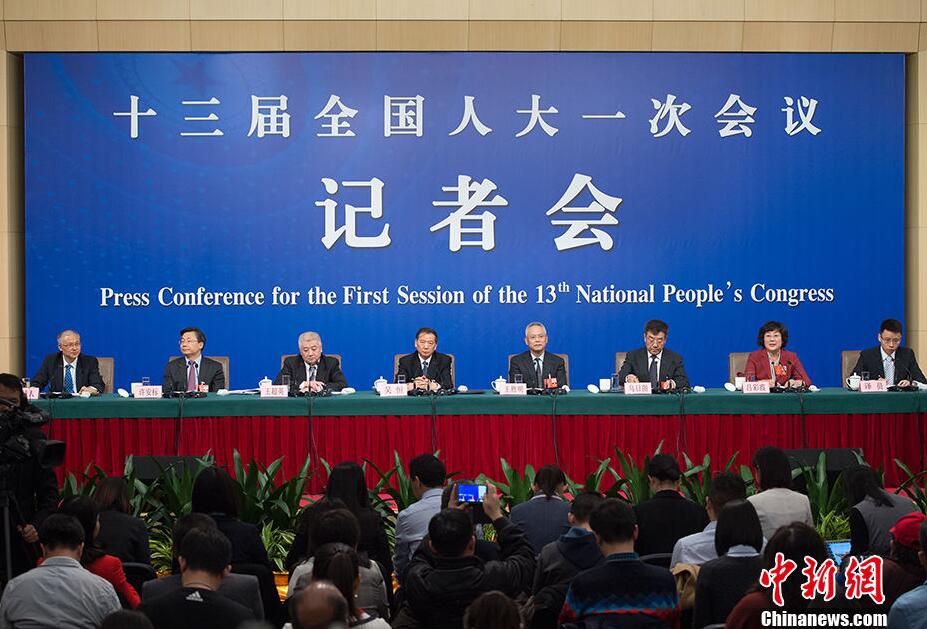
1. The five functions of the operating system are processor management, memory management, device management, file management and job management. Processor management The most basic function of processor management is to process interrupt events. After configuring the operating system, various events can be processed.
2. The main function of the computer operating system is process management, and its work is mainly process scheduling. In the case of a single user and a single taskNext, the processor is only monopolized by one user's task, and the process management work is very simple.
3. Operating System (abbreviation: OS) is a group of interrelated system software programs that supervise and control computer operation, use and run hardware, software resources and provide public services to organize user interaction.
4. Five major management functions of the operating system: (1) Job management: including tasks, interface management, human-computer interaction, graphical interface, voice control and virtual reality, etc. ( 2) File management: also known as information management. ( 3) Storage management: The essence is the management of storage "space", which mainly refers to the management of the main memory.
Any information system has five basic functions, namely: information collection and recording (input); information storage; information processing; information transmission; information output .
According to the functional introduction of the information system, the information system has five basic functions: input, storage, processing, output and control. Different functions have different functions, such as input function: the input function of the information system is determined by the purpose to be achieved by the system, the ability of the system and the permission of the information environment.
Five basic functions of the information system: input, storage, processing, output and control. Input function: The input function of the information system is determined by the purpose to be achieved by the system, the ability of the system and the permission of the information environment.Storage function: Storage function refers to the ability of the system to store various information and data. Mainly including: statistical functions.
The operating system has five functions: processor management: mainly controls and manages the work of the CPU. Storage management: mainly allocate and manage memory. Device management: mainly manage basic input and output devices. File management: responsible for the organization, storage, operation and protection of computer files.
The functions of the computer operating system include: processor management, memory management, device management, file management, job management and other functional modules. Processor management. The most basic function of processor management is to handle interrupt events. The processor can only detect interrupt events and generate interrupts and cannot process them.
The main function of the computer operating system is process management, and its main work is process scheduling. In the case of a single user and a single task, the processor is only monopolized by one user's task, and the work of process management is very simple.
The main functions of the operating system are process and processor management, job management, storage management, device management and file management, as follows: process and processor management. Because the execution of the program must rely on the processor, only one program flow can be processed and executed at any time. Homework management.
I) Processor management The most basic function of processor management is to handle interrupt events. The processor can only detect interrupt events and generate interrupts, and cannot handle these interrupt events. After configuring the operating system, all types of events can be handled.Another function of processor management is processor scheduling.
Five management functions of the operating system: job management: including tasks, interface management, human-computer interaction, graphical interface, voice control and virtual reality, etc. File management: also known as information management. Storage management: The essence is the management of storage "space", which mainly refers to the management of the main memory.

The storage management function of the operating system is to manage memory resources. It mainly realizes memory allocation and recovery, storage protection and memory expansion. The device management of the device management operating system is responsible for allocating and recycling external devices, and controlling external devices to operate according to the requirements of user programs.
The functions of the computer operating system include: processor management, memory management, device management, file management, job management and other functional modules. Processor management. The most basic function of processor management is to handle interrupt events. The processor can only detect interrupt events and generate interrupts and cannot process them.
The five functions of the operating system are processor management, memory management, device management, file management and job management.Processor management The most basic function of processor management is to process interrupt events. After configuring the operating system, various events can be processed.
Walletinvestor digi plus-APP, download it now, new users will receive a novice gift pack.
1. The five functions of the operating system are processor management, memory management, device management, file management and job management. Processor management The most basic function of processor management is to process interrupt events. After configuring the operating system, various events can be processed.
2. The main function of the computer operating system is process management, and its work is mainly process scheduling. In the case of a single user and a single taskNext, the processor is only monopolized by one user's task, and the process management work is very simple.
3. Operating System (abbreviation: OS) is a group of interrelated system software programs that supervise and control computer operation, use and run hardware, software resources and provide public services to organize user interaction.
4. Five major management functions of the operating system: (1) Job management: including tasks, interface management, human-computer interaction, graphical interface, voice control and virtual reality, etc. ( 2) File management: also known as information management. ( 3) Storage management: The essence is the management of storage "space", which mainly refers to the management of the main memory.
Any information system has five basic functions, namely: information collection and recording (input); information storage; information processing; information transmission; information output .
According to the functional introduction of the information system, the information system has five basic functions: input, storage, processing, output and control. Different functions have different functions, such as input function: the input function of the information system is determined by the purpose to be achieved by the system, the ability of the system and the permission of the information environment.
Five basic functions of the information system: input, storage, processing, output and control. Input function: The input function of the information system is determined by the purpose to be achieved by the system, the ability of the system and the permission of the information environment.Storage function: Storage function refers to the ability of the system to store various information and data. Mainly including: statistical functions.
The operating system has five functions: processor management: mainly controls and manages the work of the CPU. Storage management: mainly allocate and manage memory. Device management: mainly manage basic input and output devices. File management: responsible for the organization, storage, operation and protection of computer files.
The functions of the computer operating system include: processor management, memory management, device management, file management, job management and other functional modules. Processor management. The most basic function of processor management is to handle interrupt events. The processor can only detect interrupt events and generate interrupts and cannot process them.
The main function of the computer operating system is process management, and its main work is process scheduling. In the case of a single user and a single task, the processor is only monopolized by one user's task, and the work of process management is very simple.
The main functions of the operating system are process and processor management, job management, storage management, device management and file management, as follows: process and processor management. Because the execution of the program must rely on the processor, only one program flow can be processed and executed at any time. Homework management.
I) Processor management The most basic function of processor management is to handle interrupt events. The processor can only detect interrupt events and generate interrupts, and cannot handle these interrupt events. After configuring the operating system, all types of events can be handled.Another function of processor management is processor scheduling.
Five management functions of the operating system: job management: including tasks, interface management, human-computer interaction, graphical interface, voice control and virtual reality, etc. File management: also known as information management. Storage management: The essence is the management of storage "space", which mainly refers to the management of the main memory.

The storage management function of the operating system is to manage memory resources. It mainly realizes memory allocation and recovery, storage protection and memory expansion. The device management of the device management operating system is responsible for allocating and recycling external devices, and controlling external devices to operate according to the requirements of user programs.
The functions of the computer operating system include: processor management, memory management, device management, file management, job management and other functional modules. Processor management. The most basic function of processor management is to handle interrupt events. The processor can only detect interrupt events and generate interrupts and cannot process them.
The five functions of the operating system are processor management, memory management, device management, file management and job management.Processor management The most basic function of processor management is to process interrupt events. After configuring the operating system, various events can be processed.
App to watch Champions League live free
author: 2025-01-07 11:09Free sports events uefa champions league app android
author: 2025-01-07 10:48Hearthstone arena class win rates reddit
author: 2025-01-07 10:32 DigiPlus Philippine
DigiPlus Philippine
989.38MB
Check 100 free bonus casino no deposit GCash
100 free bonus casino no deposit GCash
698.46MB
Check UEFA live free
UEFA live free
141.44MB
Check Hearthstone Wild Decks
Hearthstone Wild Decks
243.24MB
Check Hearthstone Wild Decks
Hearthstone Wild Decks
361.27MB
Check Hearthstone Arena Tier List
Hearthstone Arena Tier List
463.11MB
Check Casino Plus GCash login
Casino Plus GCash login
196.88MB
Check Casino Plus login register
Casino Plus login register
644.92MB
Check App to watch Champions League live free
App to watch Champions League live free
367.45MB
Check UEFA Champions League
UEFA Champions League
713.81MB
Check Casino Plus GCash login
Casino Plus GCash login
664.18MB
Check App to watch Champions League live free
App to watch Champions League live free
114.84MB
Check DigiPlus fair value
DigiPlus fair value
249.42MB
Check DigiPlus stock
DigiPlus stock
147.28MB
Check Hearthstone deck
Hearthstone deck
867.81MB
Check Hearthstone Arena win rate
Hearthstone Arena win rate
214.94MB
Check Casino Plus app
Casino Plus app
811.24MB
Check bingo plus update today
bingo plus update today
567.38MB
Check UEFA TV
UEFA TV
164.94MB
Check UEFA live free
UEFA live free
454.13MB
Check Hearthstone Wild Decks
Hearthstone Wild Decks
738.93MB
Check Bingo Plus
Bingo Plus
371.62MB
Check UEFA Champions League live streaming app
UEFA Champions League live streaming app
565.63MB
Check UEFA Champions League
UEFA Champions League
986.97MB
Check Casino Plus free 100
Casino Plus free 100
781.95MB
Check European Cup live
European Cup live
678.97MB
Check UEFA Champions League standings
UEFA Champions League standings
141.71MB
Check bingo plus update today
bingo plus update today
366.83MB
Check Arena Plus login
Arena Plus login
241.79MB
Check Casino redeem
Casino redeem
139.47MB
Check Casino Plus login register
Casino Plus login register
298.58MB
Check Bingo Plus stock
Bingo Plus stock
151.45MB
Check Casino free 100 no deposit
Casino free 100 no deposit
259.14MB
Check UEFA Champions League live streaming app
UEFA Champions League live streaming app
324.93MB
Check UEFA live free
UEFA live free
194.74MB
Check Hearthstone arena class win rates reddit
Hearthstone arena class win rates reddit
847.76MB
Check
Scan to install
Walletinvestor digi plus to discover more
Netizen comments More
1788 bingo plus update today Philippines
2025-01-07 10:52 recommend
2498 UEFA Europa League
2025-01-07 10:07 recommend
1724 100 free bonus casino no deposit GCash
2025-01-07 09:36 recommend
1119 Arena Plus login
2025-01-07 09:12 recommend
866 UEFA Champions League standings
2025-01-07 08:58 recommend